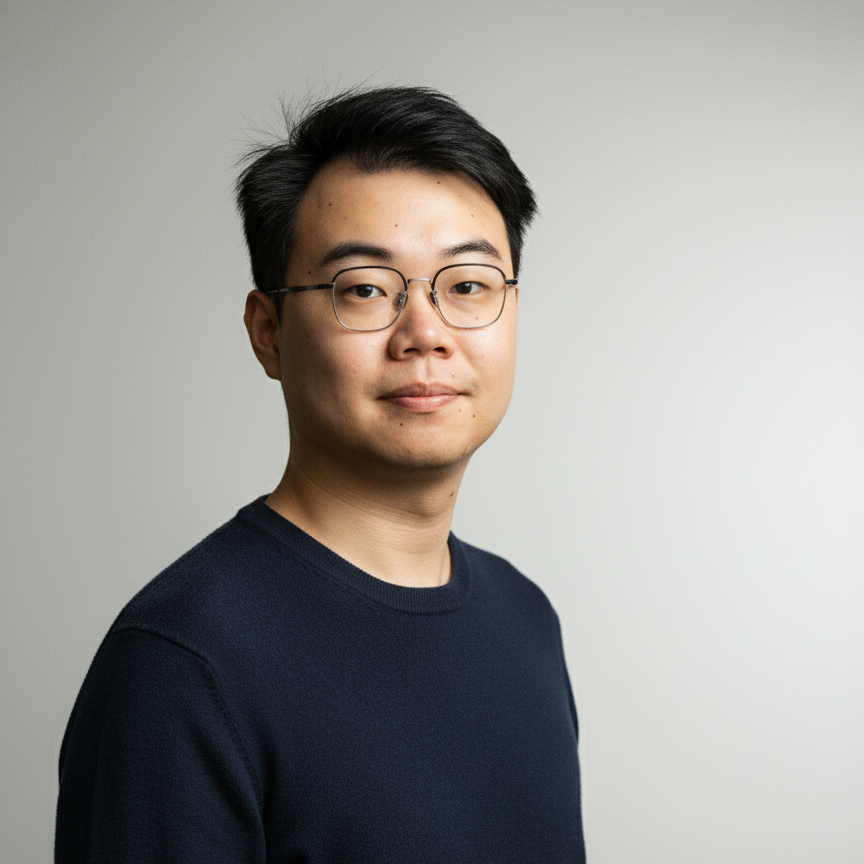|
Tao Zhong I'm a Ph.D. student at Princeton University, supervised by Prof. Christine Allen-Blanchette. I received my B.A.Sc. in Engineering Science from the University of Toronto, where I worked with Prof. Animesh Garg. Previously, I interned at Noah's Ark Lab Canada with Prof. Yang Wang on computer vision and domain generalization, and worked with Prof. Huihuan Qian at AIRS and CUHK(SZ) on marine robotics. Feel free to check out my CV or send me an Email if you want to connect. |

|
Research InterestsMy research focuses on Physics- and Geometry-Aware Deep Learning. I develop novel machine learning and generative techniques that exploit the mathematical structure of the physical world, including symmetries, topology, and physical laws, to solve complex problems in:
|
Publications* denotes equal contribution |

|
Local-Canonicalization Equivariant Graph Neural Networks for Sample-Efficient and Generalizable Swarm Robot Control
Keqin Wang*, Tao Zhong*, David Chang, Christine Allen-Blanchette Preprint, 2025 arXiv We introduce LEGO, a symmetry-aware graph neural network framework that enables sample-efficient, scalable, and generalizable swarm robot control across diverse team sizes and environments. |

|
Grasp2Grasp: Vision-Based Dexterous Grasp Translation via Schrödinger Bridges
Tao Zhong, Jonah Buchanan, Christine Allen-Blanchette NeurIPS, 2025 project page / arXiv Grasp2Grasp enables simulation-free, vision-based translation of dexterous grasps across robot hands using Schrödinger Bridges with physics-informed costs for stable, functionally aligned grasps. |

|
GAGrasp: Geometric Algebra Diffusion for Dexterous Grasping
Tao Zhong, Christine Allen-Blanchette ICRA, 2025 project page / arXiv GAGrasp uses a geometric algebra diffusion model to generate robust, physically plausible dexterous grasps that are naturally equivariant to an object's pose. |

|
Adapting to Distribution Shift by Visual Domain Prompt Generation
Zhixiang Chi*, Li Gu*, Tao Zhong, Huan Liu, Yuanhao Yu, Konstantinos N Plataniotis, Yang Wang ICLR, 2024 project page / arXiv We introduce VDPG, a method that adapts large models to new visual domains at test-time using only a few unlabeled images to generate a domain-specific prompt that guides the model's features. |

|
Fast-Grasp'D: Dexterous Multi-finger Grasp Generation Through Differentiable Simulation
Dylan Turpin, Tao Zhong, Shutong Zhang, Guanglei Zhu, Eric Heiden, Miles Macklin, Stavros Tsogkas, Sven Dickinson, Animesh Garg ICRA, 2023 project page / arXiv This paper presents Fast-Grasp'D, a differentiable simulator that rapidly generates Grasp'D-1M, a large dataset of stable, contact-rich, multi-finger grasps for robotic learning. |

|
Meta-DMoE: Adapting to Domain Shift by Meta-Distillation from Mixture-of-Experts
Tao Zhong*, Zhixiang Chi*, Li Gu*, Yang Wang, Yuanhao Yu, Jin Tang NeurIPS, 2022 arXiv / Code We propose Meta-DMoE, a framework that adapts to domain shifts by using a meta-learned aggregator to distill knowledge from specialized expert models into a student network for fast test-time adaptation. |
Education |

|
Princeton University
Ph.D. in Mechanical and Aerospace Engineering (Robotics Track) 2023.09 - Present cGPA: 4.0 |

|
University of Toronto
B.A.Sc. in Engineering Science with High Honours Major in Robotics Engineering, Minor in Artificial Intelligence 2018.09 - 2023.06 cGPA: 3.81 |
Miscellanea |
Academic Service |
Reviewer, ICML (2026), NeurIPS (2025), ICLR (2025, 2026), TMLR, RA-L, L4DC (2024, 2026) |
Teaching |
Teaching Assistant, MAE433 Fall 2025, MAE206 Spring 2026, Princeton University |